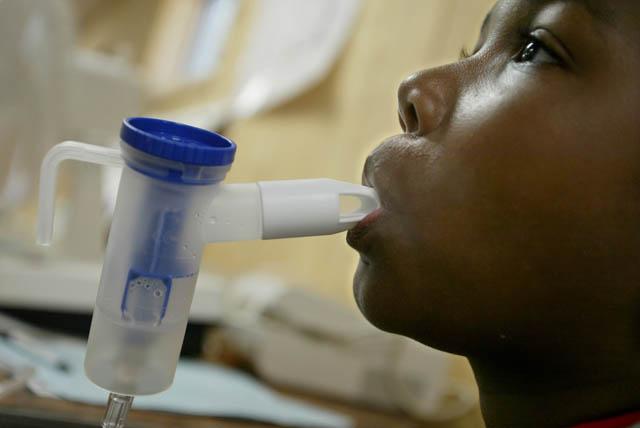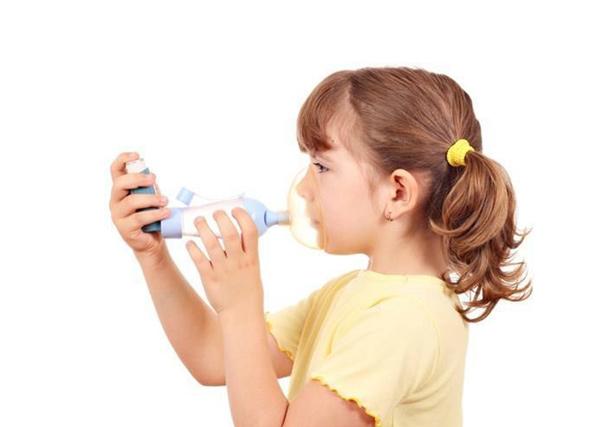You are here
Kids with more daily stress have more nightly asthma awakenings
By Reuters - Apr 30,2016 - Last updated at Apr 30,2016

Photo courtesy of success4yourchild.com
A stressful day may make a child more prone to an asthma attack that night — with worse than usual asthma symptoms the next day as well, a small US study suggests.
“Nocturnal asthma is an area that patients often talk about but there’s not a lot of research in child nocturnal asthma,” said lead author Dr Caroline C. Horner of the Department of Paediatrics at Washington University School of Medicine and St Louis Children’s Hospital in Missouri.
“When people talk about stressors they usually talk about big life events, traumatic experiences,” but she wanted to look at daily life and the anxiety of a bad day at school or an unexpected test, Horner told Reuters Health.
For about 12 weeks, 46 children with diagnosed asthma and their caregivers filled out daily diary cards with 42 items addressing night-time awakening for asthma or other reasons, and measures of parental and child stress.
Children answered the question “how was your day today?” by choosing very bad, bad, good or very good, and rated their feelings during the day by circling happy or sad faces.
“The global question was really how was your day, based on things that would happen routinely that might add up to being stressful,” Horner said.
Caregivers recorded use of the asthma drugs albuterol and prednisone, school absences and doctor’s visits, and answered questions about their own family, home, job and financial demands.
During the three-month study, about 60 per cent of kids had at least one night-time awakening due to asthma. Four out of five children had at least one nighttime awakening for another reason.
Overall, younger kids and those who used an asthma controller more often had more frequent asthma awakenings, according to the results in the Journal of Allergy and Clinical Immunology.
Kids rated their day as “very bad” on less than 2 per cent of days — most were good or very good. Awakening with asthma was more likely at night after days rated very bad, bad or good compared to very good days, regardless of medication use that day.
“Daily global stress was rated as very bad and bad on 1.4 per cent and 4.2 per cent of days, respectively,” said Bhupendrasinh Chauhan of the College of Pharmacy at the University of Manitoba in Winnipeg, Canada, who was not part of the new study.
“I doubt that the questionnaire was not influenced by child’s parent[s], at least in the pragmatic scenario,” Chauhan told Reuters Health by e-mail.
The sample size was also very small, so this study may be a base to conduct a larger prospective clinical study to establish the association of stress with asthma, Chauhan said.
The day after an asthma awakening, kids used more albuterol and prednisone, had more missed school days and more contact with doctors than on other days, the authors found.
“If you rated your day as anything other than very good, you were twice as likely to awaken with asthma symptoms,” Horner noted.
Stress may activate the steroids that turn on immune cells called “mast cells” in your lungs, she said. Mast cells release histamines during allergic reactions.
“It may be similar to an allergic reaction but not exactly the same,” Horner said.
Lung function is lowest in the middle of the night, and with the added factor of asthma lung function is even lower, she said. Though the night-time awakenings in themselves aren’t dangerous, “if you wake up at night you’re more likely to have things the next day that signal difficulty”, she said.
Related Articles
Children with asthma are no more likely than their peers to suffer mental health problems — provided their asthma is well-controlled, according to Dutch researchers.
Young children, who receive cognitive behaviour therapy to help them cope with night terrors, may have fewer behaviour problems tied to poor
Children who are exposed to tobacco smoke from their fathers while they are in the womb may be more likely than those who are not to develop














